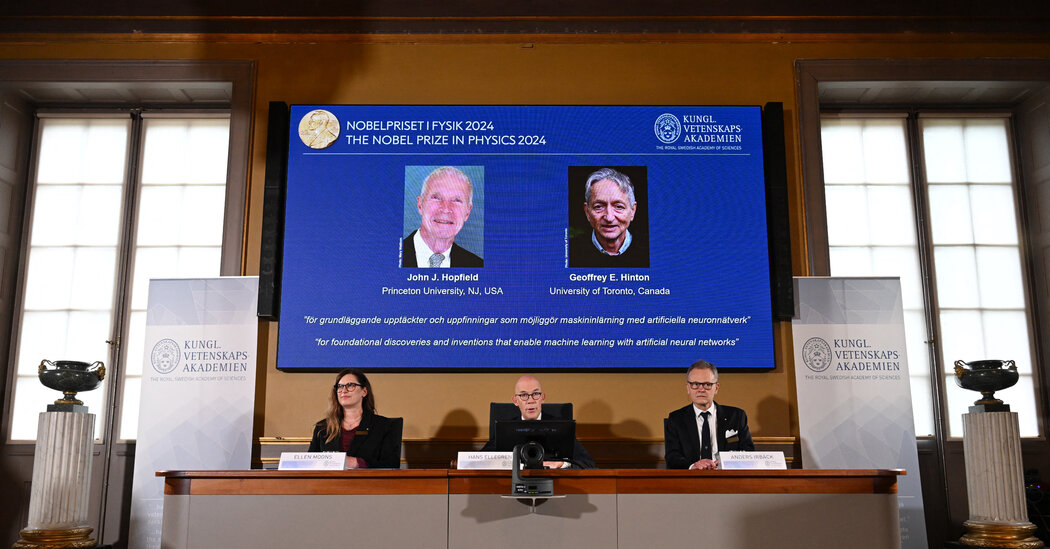John J. Hopfield and Geoffrey E. Hinton have “showed a completely new way for us to use computers to aid and to guide us” in solving problems, the committee said.
John J. Hopfield and Geoffrey E. Hinton were awarded the Nobel Prize in Physics on Tuesday “for foundational discoveries and inventions that enable machine learning with artificial neural networks,” the Nobel Committee for Physics announced.
“This year’s physics laureates’ breakthroughs stand on the foundations of physical science,” the committee said on X. “They have showed a completely new way for us to use computers to aid and to guide us to tackle many of the challenges our society face.”
In announcing the award, the committee noted that machine learning “has long been important for research, including the sorting and analysis of vast amounts of data.”
“John Hopfield and Geoffrey Hinton used tools from physics to construct methods that helped lay the foundation for today’s powerful machine learning,” the committee said. “Machine learning based on artificial neural networks is currently revolutionizing science, engineering and daily life.”
Who are the winners?
Dr. Hinton, born just outside London, has mostly lived and worked in the United States and Canada since the late 1970s. He recently retired from his job as a researcher and vice president at Google — in part, he said, so that he could speak freely about the rise of A.I. — and remains is a professor of computer science at the University of Toronto.
Dr. Hinton began researching neural networks as a graduate student at the University of Edinburgh in the early 1970s, a time when few researchers believed in the idea. Forty years later, Dr. Hinton doubled down on the concept, launching a new effort with the help of other researchers to tackle the technology with backing from the Canadian government.
